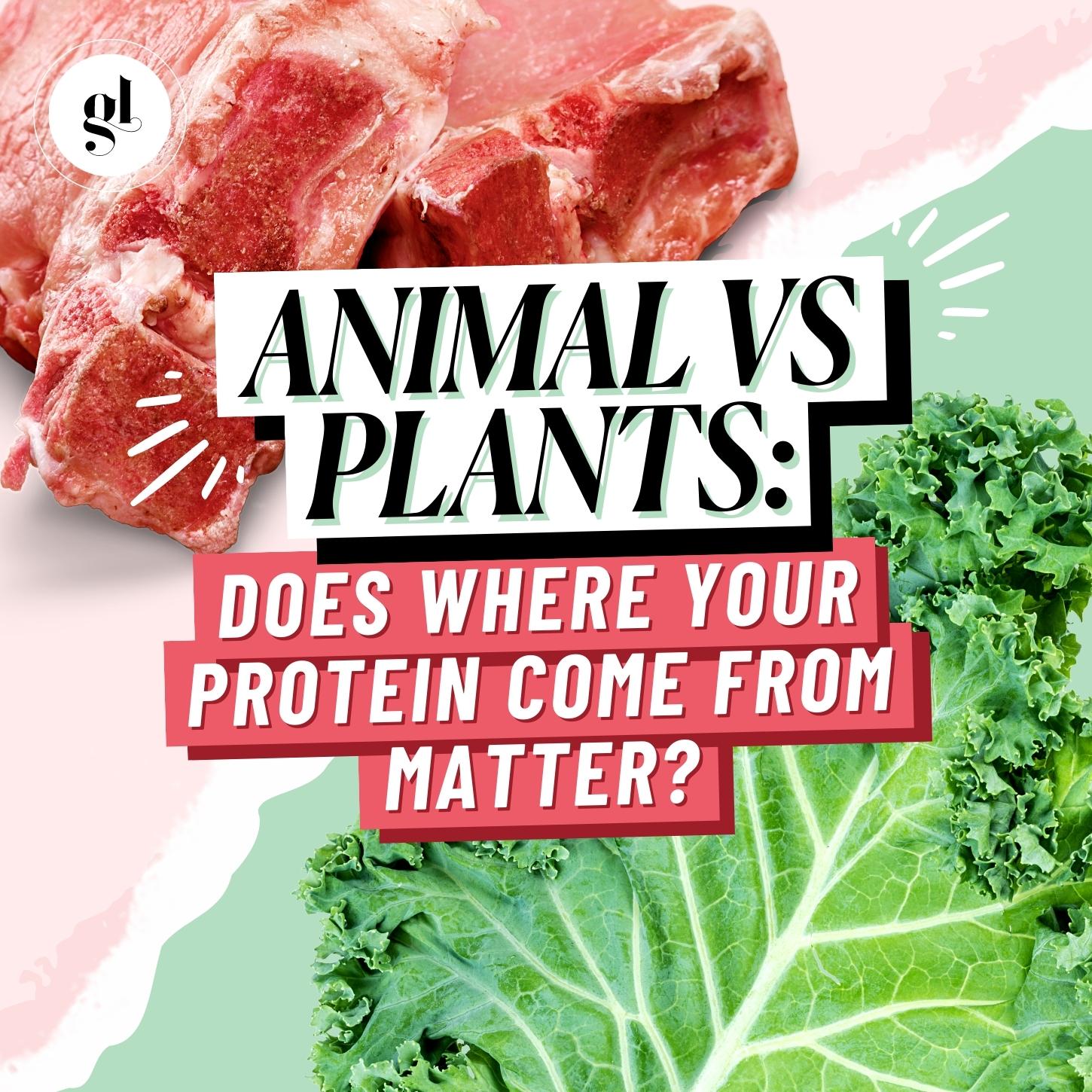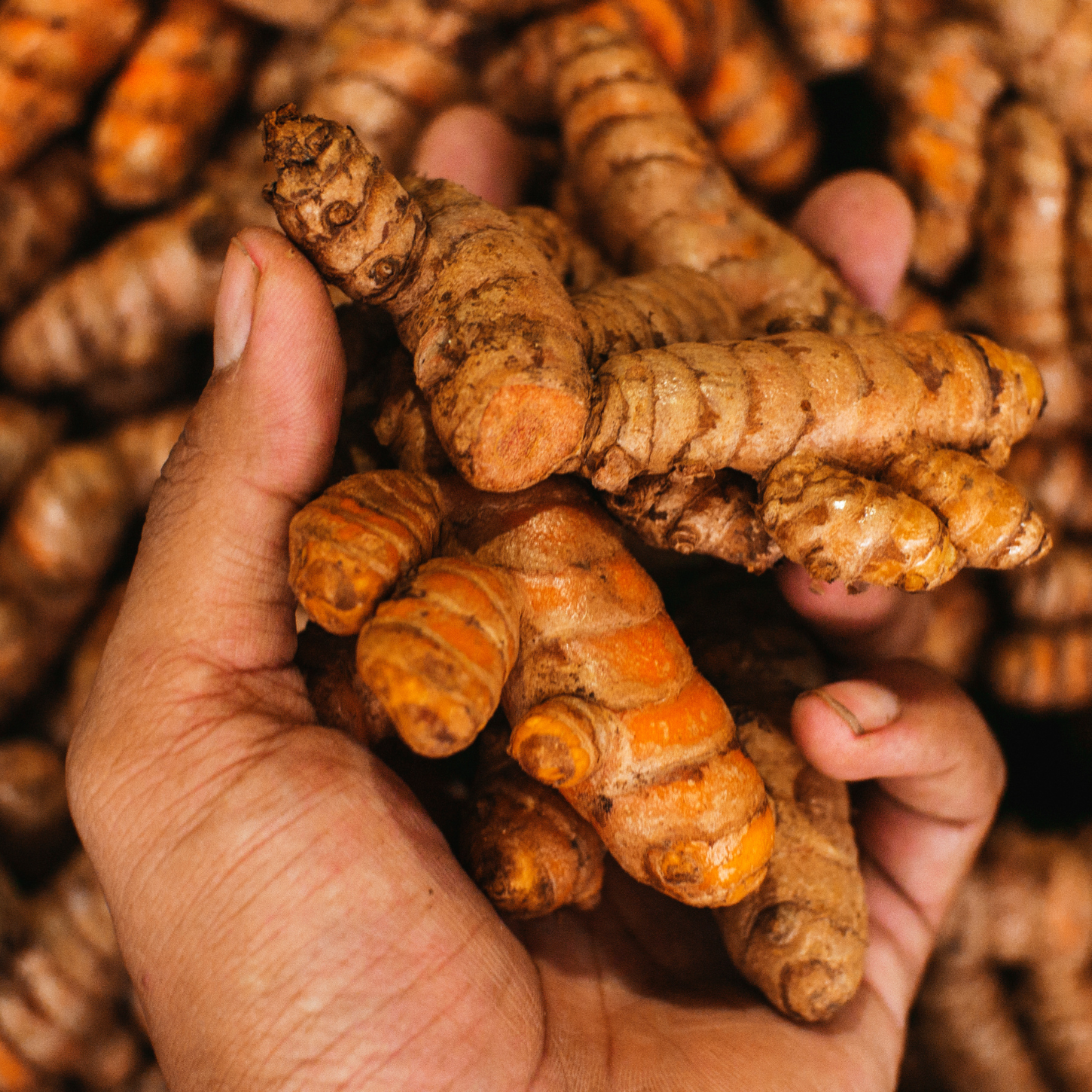When it comes to nutrition, we hear a lot about the importance of protein, and for good reason.
Protein is an essential nutrient needed for the building, maintenance, and repair of almost all tissues in your body, including your bones, muscles, blood, hair, nails, and organs.
It is something you need to eat almost every day as your body doesn’t store it like it stores fats and carbs. Protein is also a source of energy for your body. It helps keep your immune system strong and keeps you feeling full longer.
Protein is especially important for brain health. It is needed to produce the neurotransmitters that impact our moods and feelings. It’s also required for getting nutrients to brain cells so we can think clearly, remember important information, and have enough mental energy to complete tasks.
Unfortunately, there’s a lot of confusion out there when it comes to protein.
How much protein do we really need? Could some people be getting too much protein? And is animal protein or plant-based protein better?
Check out this video to find out what the science says in answer to these questions.
Transcript: Animal vs Plants: Does Where Your Protein Come From Matter?
One of the first things people say to you when you tell them that you’re plant-based is, “Where do you get your protein from?”
This is one of the biggest myths that has circulated about a plant-based diet - that you can’t get enough protein.
But no evidence supports that someone who eats a wide variety of plant-based foods won’t meet their nutritional protein requirements. In fact, even athletes can meet their protein needs on a plant-based diet! Just look at Scott Jurek, ultra-marathon runner who has won many titles and set many records; Patrik Baboumian, vegan strongman who can bench press 210 kg and deadlift 360 kg; and Mike Fremont, a 100-year old ultra marathon runner who holds 4 world records and is still lacing up his sneakers.
In fact, you may be surprised to learn that although protein malnutrition is still prevalent in some areas of the world, it is virtually non-existent in developed countries!
Yet we still hear the rumours that you can’t get enough protein on a plant-based diet; that meat provides a more complete protein; that your muscles are going to waste away if you only eat plants.
Well you’re not here to listen to what I have to say, you’re here to listen to what the science says.
But before I get into the nitty gritty, let’s talk about what protein actually is.
Along with fats and carbohydrates, protein is one of the 3 macronutrients.
It is essential and is needed for the building, maintenance and repair of almost all of the tissues in your body. This includes your bones, muscles, blood, hair, nails and organs. It is something you need to eat almost every day as your body doesn’t store it like it stores fats and carbs. Protein is also a source of energy for your body. It helps to keep your immune system strong and can also keep you feeling full longer.
Amino acids are the building blocks of protein. Protein is made up of 21 amino acids- your body can make 12 of them and the remaining 9 are essential because you need to get them directly from your food. As long as you’re eating a variety of whole, natural foods, and enough total protein, you should meet your needs for all nine essential amino acids.
Okay, so this brings us to the next question: how much protein do you really need?
In the US, the official recommended daily allowance of protein is 0.36 grams of protein for every pound of body weight. That means, at 130 pounds, you’d need about 47 grams of protein per day. Of course, protein requirements may change depending on age, activity level or if you’re pregnant or lactating.
To find your own protein requirements, follow these steps:
1. Find your “P” value.
Kids ages 4 to 13 = 0.43
Adolescents ages 14 to 18 = 0.39
Adults ages 19 to 64 (moderately active) = 0.36
Seniors ages 65+ and special needs = 0.44 to 0.522.
2. To calculate your protein needs, multiply your lean body weight (in pounds) by your “P” value.
Alright, so now we’ve looked at what protein is and how much you need, let’s talk about the best sources of protein. And yes, we’re going to find out what science has to say about plant protein versus animal protein.
Now at face value, it doesn’t matter whether amino acids come from animal or plant protein.
However, protein is not consumed in isolation. Instead, it comes packaged with a host of other nutrients. The quality and amounts of fats, carbohydrates, fiber, sodium, and other nutrients in the ‘protein package’ are really what matter as they may influence long-term health.
Sure, animal foods contain high amounts of protein but is it really worth its harmful effects to your health?
In 2016, a landmark study was published out of Harvard, involving more than 100,000 people, that found that replacing animal protein with plant protein was associated with lower risk of dying prematurely. They found that swapping just 3% plant protein for any of the animal proteins- processed meat, chicken, fish, eggs, or dairy, was associated with a significantly lower risk of death.
Just one year later, one of the largest studies was published in the British Medical Journal involving more than half a million people. The researchers found that the consumption of red meat was associated with increased risk of death from cancer, heart disease, high blood pressure, stroke, and other cerebrovascular diseases, respiratory disease, infection, kidney disease, chronic liver disease and diabetes.
So let’s focus on the cardiovascular risk for a moment.
- Meat is high in what we call Advanced Glycation End Products (AGEs), which contribute to vascular damage.
- Meat also contains pro-inflammatory compounds such as arachidonic acid, saturated fat and carnitine.
- It is high in heme iron, which has pro-oxidant effects that promote cardiovascular disease.
- Last but not least, meat also promotes the growth of unfavourable bacteria that lead to the production of TMAO, which can cause blockages in the blood vessels of the heart and brain.
Animal protein also increases the risk of cancer.
When we consume too much animal protein, the body increases its production of a hormone called IGF-1 (insulin-like growth factor 1). In early life stages, IGF-1 helps promote growth and development, however, later in life, IGF-1 promotes the aging process. It has also been shown to promote the growth and proliferation of cancer cells. In fact, a whopping 80% of breast, bowel, and prostate cancers are attributed to dietary practices, particularly a high meat diet!
Diets high in animal protein are also associated with an increased risk of diabetes. As the main animal protein source, studies have shown red meat increases type 2 diabetes risks independent of fat intake due to the impact of heme iron, nitrites, and advanced glycation end products.
On the other hand, those who eat plant-based tend to have lower blood sugar levels, higher insulin sensitivity, and up to a 78% lower risk of developing type 2 diabetes.
The science is pretty clear. Plant protein, with its health-promoting fiber, phytochemicals, vitamins and minerals, is the real “protein package” and does not come with the harmful effects that animal protein does. Just make sure you are consuming a variety of plant-based protein sources to meet your protein needs. Each food you eat will provide a slightly different pattern of amino acids and you need a mix of foods for optimal nutrition.
If you’re wondering how you can add in more plant protein to your diet, why not:
- Use mushrooms, beans and even tofu to add a meaty texture to a dish
- Add hemp seeds or chia seeds to your smoothie
- Grab a handful of nuts as a snack instead of a chocolate bar
- Add lentils or chickpeas to your favourite salad
- Enjoy hummus or nut butter with veggie sticks for a snack
- Make delicious protein balls for something sweet
Now before you go off to your kitchen to hook into the hummus, please like and subscribe to our channel and please share in the comments your favorite plant-based snacks. And if you want to learn more about nutrition for optimal health, check out this video here.














What Do You Think? Comment Below: